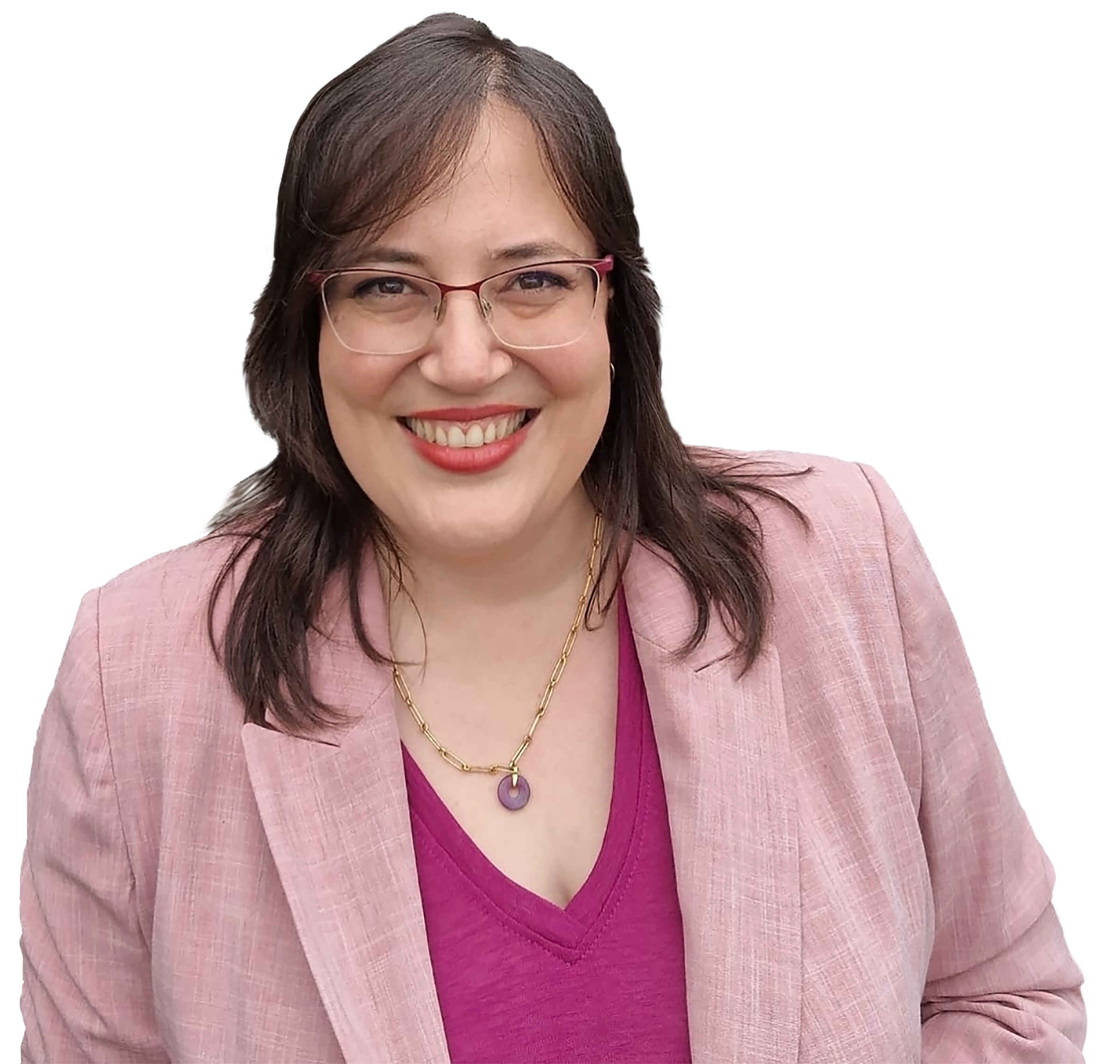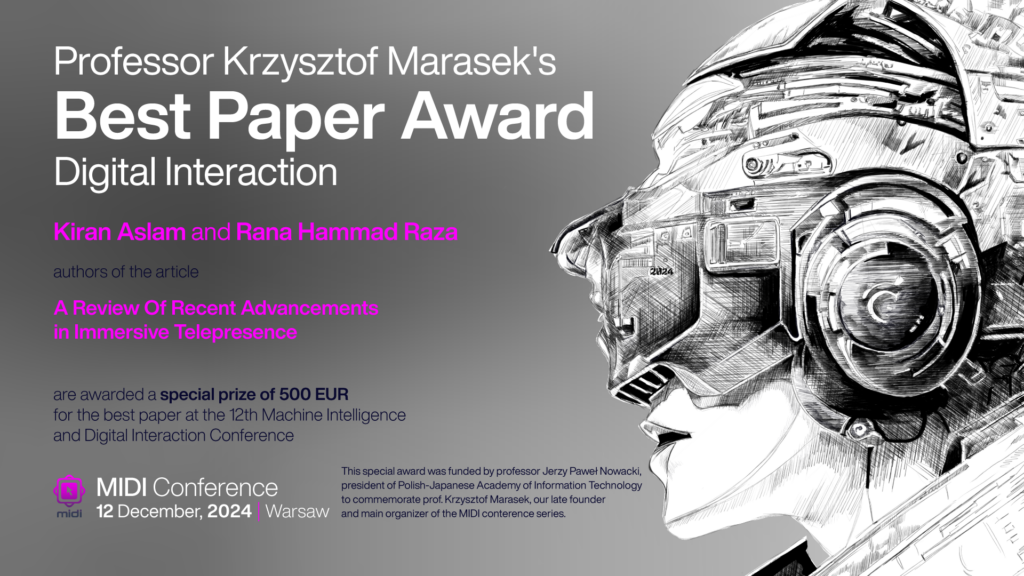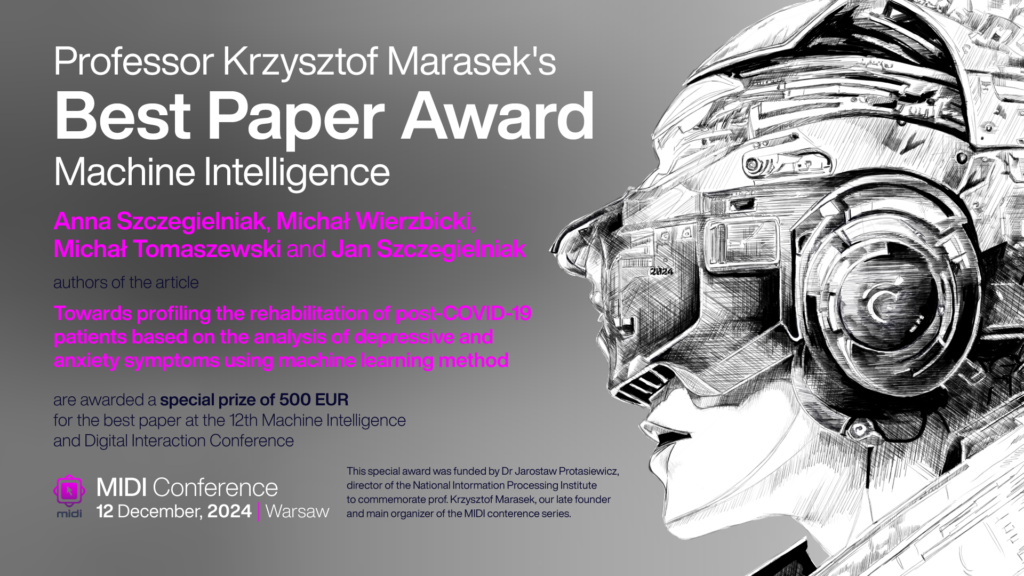The stationary part of the conference will take place on December 12, at the Auditorium of the Polish-Japanese Academy of Information Technology in Warsaw, Building A (ground floor), ul. Koszykowa 86.
Presentations from the scientific programme are available here.
Keynote Speaker

Zoraida Callejas
Associate Professor at the Software Engineering Department of the University of Granada
Zoraida Callejas is Associate Professor at the Software Engineering Department of the University of Granada, from which she obtained a PhD in 2008, and is part of the Research Centre for Information and Communications Technologies (CITIC-UGR). Her research focuses on areas related to dialogue systems, conversational AI, and speech and language processing. She has published more than 150 contributions in leading scientific journals, books, and conferences, and has published 2 books. She has participated in more than 15 projects in European, Spanish, and local calls. She recently coordinated the EU H2020 project MENHIR, focused on the use of conversational technologies to promote mental health. She is also currently coordinating the research project CONVERSA, aboutvdata-efficient development and testing of innovative, open, and safe conversational resources in Spanish. She is also the coordinator of the RTVE-UGR Chair on Conversational AI and its applications in the media with the public Spanish National TV and Radio Corporation.
Keynote Speaker

Marek Kozłowski
Head of AI LAB at the National Information Processing Institute in Warsaw
Marek Kozłowski leads a team of researchers and programmers who develop software that is enriched with intelligent text and image data processing methods. He is passionate about natural language processing, data mining, and machine learning. He has written over 40 scientific publications on semantic text processing and machine learning. Marek has participated in commercial machine learning research projects for the private sector, including at Samsung, France Telecom, Orange Labs, Millward Brown, Vive Textile Recycling, and Connectis. He has also competed in a host of international machine learning events, including the IEEE BigData 2019 Cup.
MIDI 2024 – Preliminary Agenda (CET timezone)
| 10:30 | Conference opening |
| 11:00 | Opening keynote speech Prof Zoraida Callejas: Conversational Systems for Digital Mental Health and Wellbeing |
| 11:45 | Discussion panel: Artificial Intelligence in the European Union: Unlocking opportunities and addressing challenges chair/moderator: Luigi Lai National Information Processing Institute Abstract Artificial Intelligence in the European Union: Unlocking opportunities and addressing challenges |
| 12:45 | Human Aspects in Science and Engineering Group discussion on recent advancements of transdisciplinary research and application in aerospace, digital heritage, and biodiversity by the HASE research group chair/moderator: dr Wieslaw Kopec Polish-Japanese Academy of Information Technology The discussion will include the following topics: – Preserving tangible and intangible cultural heritage – Challenges and opportunities in space exploration using extended reality – Citizen science and machine learning for nature conservation) |
| 14:15 | Coffee break |
| 14:45 | Discussion panel: Collaboration for Development: Interdisciplinary panel meeting on the challenges of digital medicine chair/moderator: dr Rafal Jozwiak and Tomasz Jaworski National Information Processing Institute Abstract Collaboration for Development: Interdisciplinary panel meeting on the challenges of digital medicine |
| 15:45 | MIDI 2024 Best Paper Awards |
| 16:00 | Closing keynote speech Dr Marek Kozłowski: National LLMs, how they change the future of Polish AI ecosystem |
| 16:30 | Conference closing |
The Digital Heritage of the Early Home Computer Era
Visit our stand to experience the sound of programs recorded on magnetic tape, play River Raid on a green CRT monitor, or type in a computer program from an early ’90s printed magazine. We will be happy to show you how games were distributed in the era of ubiquitous computer piracy, demonstrate different floppy disk formats, tell you about modems, the FidoNet network, Polish BOSMAN 8 computer or transmitting programs over the radio or copying them with a two-cassette tape recorder. Those eager for aesthetic experiences will be able to watch fresh demoscene productions – demo programs, animations, graphics and music. Although the computers they are created for are sometimes 40 years old, they still attract groups of talented artists and coders, and their art have been recognized by the UNESCO and put on a list of intangible cultural heritage.
Maciej Grzeszczuk
The Foundation for the History of Home Computers / XR Center – Polish-Japanese Academy of Information Technology

